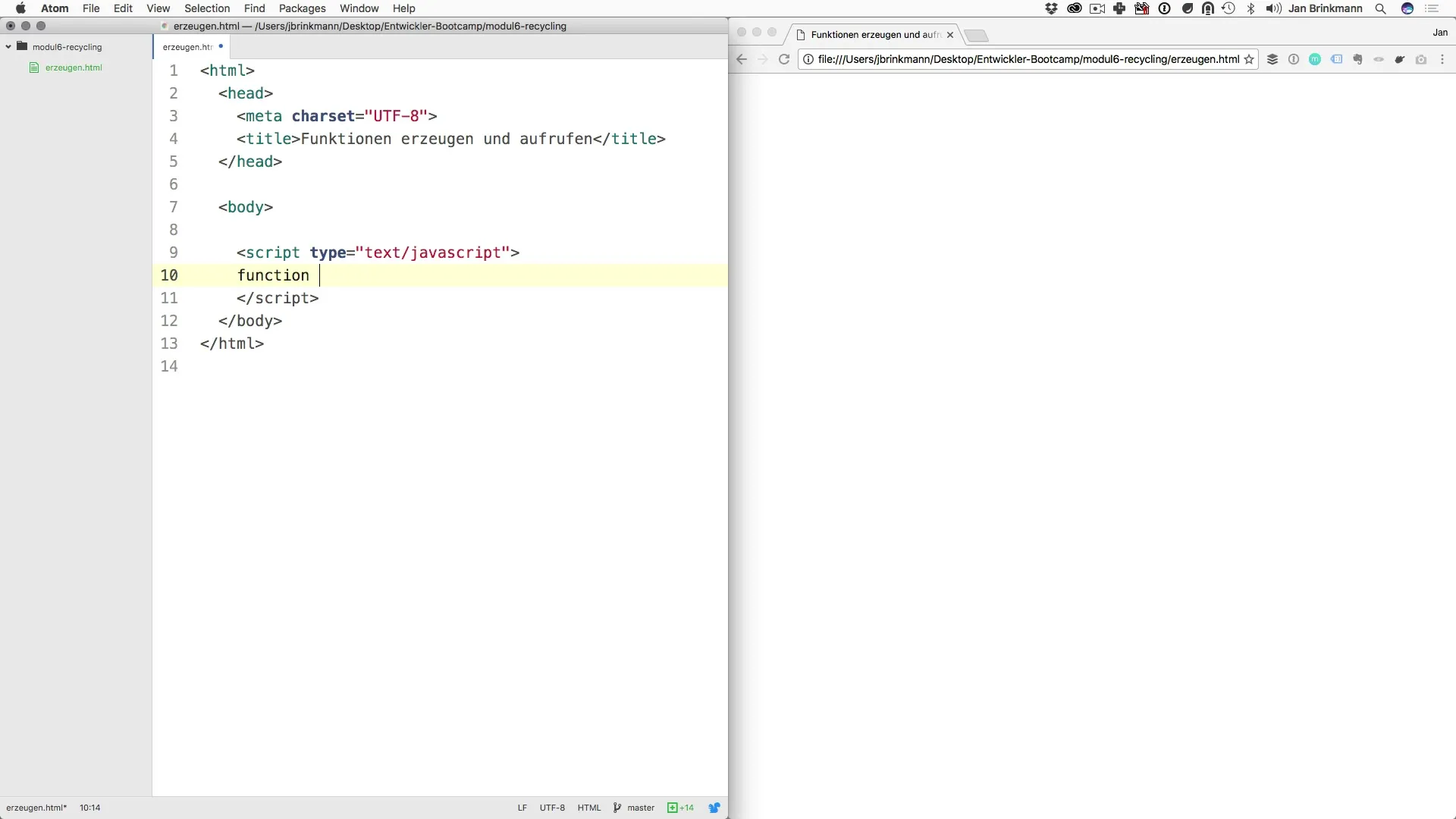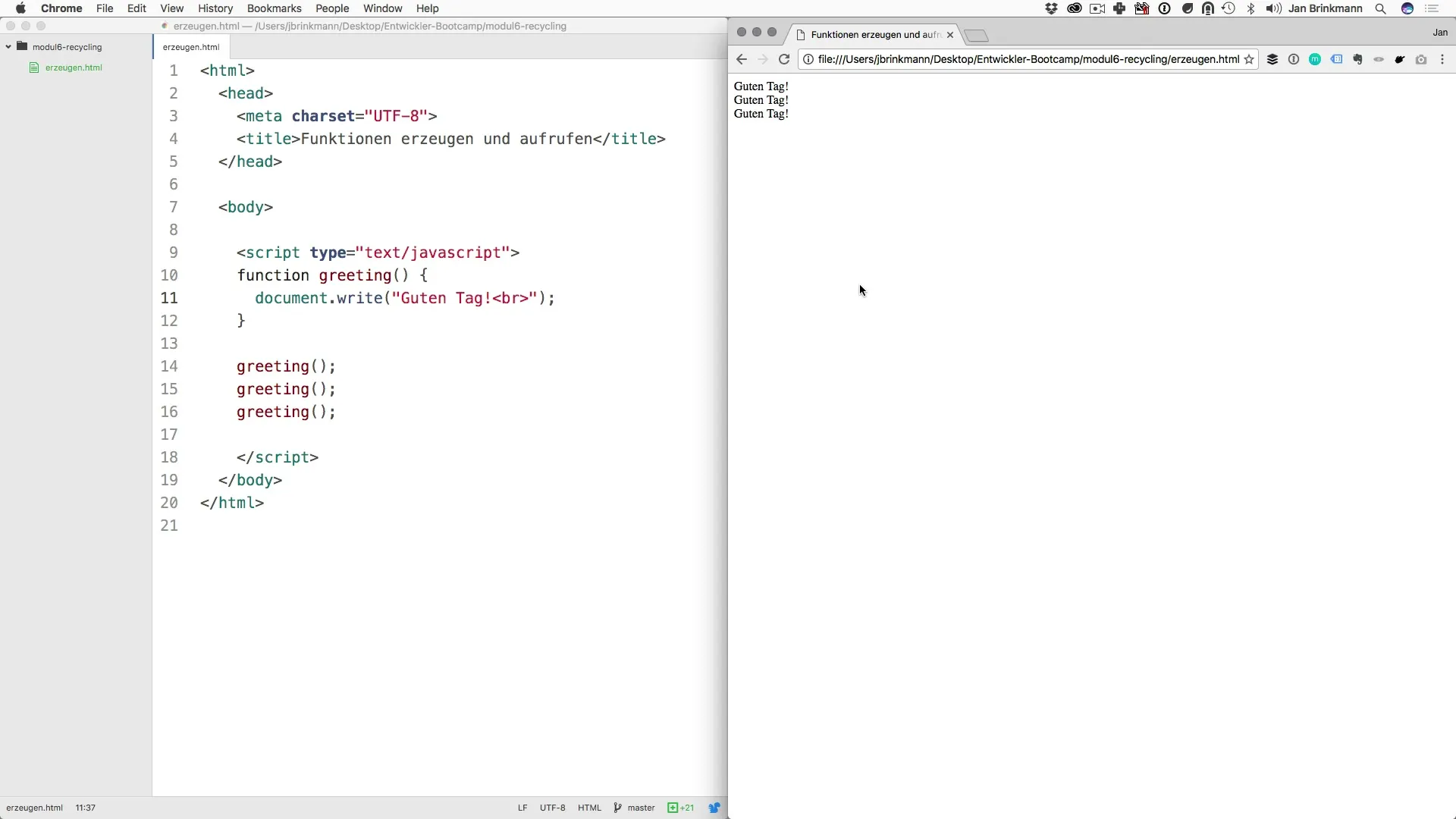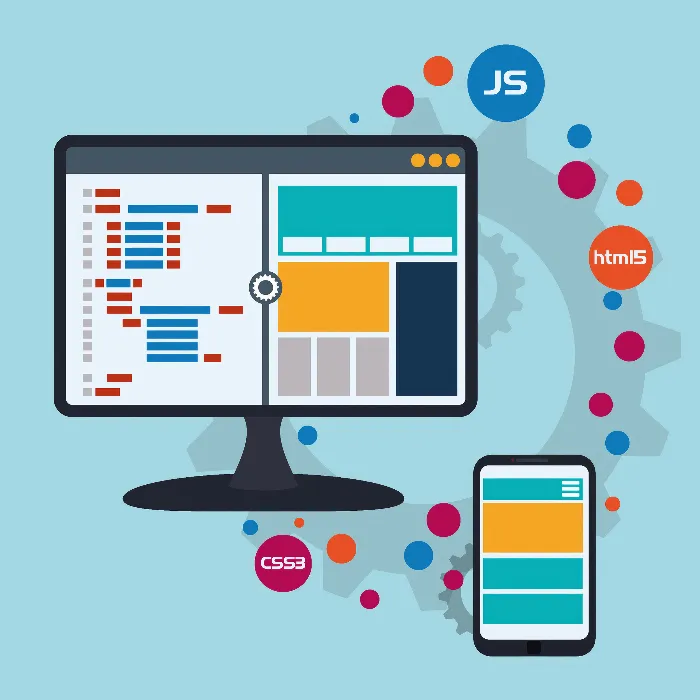Mastering functions is a central component of software programming. Functions allow you to structure logical sequences and make your code modular. When you break down your code into small, reusable pieces, you will find that programs not only become easier to develop but also significantly improve their maintainability. In this guide, I will show you how to effectively create and use functions.
Key Insights
- Functions are reusable code blocks that help you structure logic.
- You can define functions and then call them in various places in your code.
- Parameters allow you to pass values dynamically to functions, increasing their flexibility.
Step-by-Step Guide
Definition of a Function
To define a function, you use the keyword function followed by a name that should be unique so you can reuse it later in your code. Here’s a simple example:

In this example, we define a function called greeting. This function can be called at multiple points in your code to generate a simple greeting. In the next step, you will learn how to actually call this function.
Calling a Function
Once you have defined the function, you can call it by writing its name followed by parentheses. Even if the function has no parameters, the parentheses are necessary to actually execute it.
Here you can see that we call the function greeting without parameters. After the call, the output "good day" is generated. You can use the same call multiple times to output the greeting several times.
Using Parameters
Functions become truly powerful when you start using parameters. Parameters are placeholders that allow you to pass values to your function, making it more adaptable.
In a later section, we will see how to use parameters to perform simple calculations with different values, for example. This is a very sensible method to increase the reusability and flexibility of your code.
Modular Programming
A central aspect of programming is that you can delegate logic to modules through functions. Imagine you want to perform a simple addition, like 5 + 3. Instead of repeating this logic in every section of your code, you can create a function that carries out this calculation.

A simple example of such a function could be called add, where you pass two parameters: the numbers you want to add. This saves you from having repetitive code and makes your program clearer.
Insight into Structure
Do you know the feeling when your code looks chaotic after a while? With functions, you maintain control over the structure of your code. Each function has its specific area of responsibility, and through modularization, your project becomes clearer.
Think of a function like an engine: it is ready and defines what needs to be done, but it is only executed when you activate it. This way, you can organize your code sensibly and ensure its maintainability.
Summary – Creating and Calling Functions
Functions are one of the most fundamental and useful concepts in programming. They allow you to make code reusable, modular, and clear. You have learned how to define a function, call it, and how parameters can increase the flexibility of your functions. You are now on the best path to mastering the principles of software programming.
Frequently Asked Questions
What are functions in programming?Functions are reusable code blocks that perform specific tasks and help structure the code.
How do you call a function?You call a function by writing its name followed by parentheses.
What are parameters in functions?Parameters are placeholders that allow values to be passed to a function.
Why are functions important?Functions increase the reusability and maintainability of code and make it clearer.
Can you use multiple parameters in a function?Yes, you can pass multiple parameters to a function to increase its flexibility.


